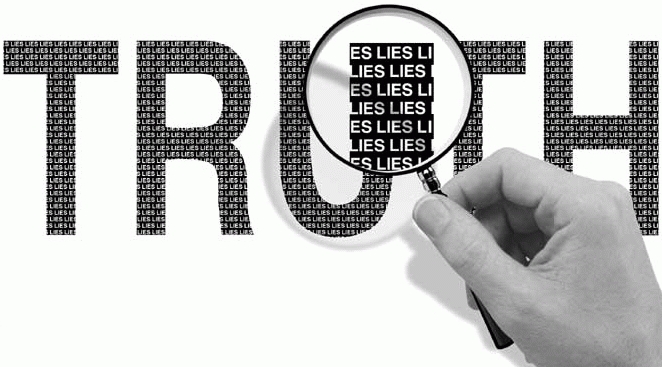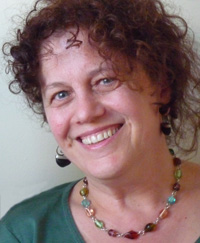What will it take to increase the rewards for telling the truth in politics?
In a test of a unique collaboration technology, Journalism That Matters (JTM) will create the platform for a 90-minute, solutions-based discussion of that question with a public teleconference, “Rewarding the Truth: Facts, Fibs and Accountability in Political Reporting.” Among participants will be political press analyst Justin Peters of the Columbia Journalism Review.
Anyone can participate for free by registering in advance for the phone-in event, which will run from 3 p.m. to 4:30 p.m. (EDT) on Tues., Sept. 25. Journalism students from Elon University, the University of Nevada-Reno and the Missouri School of Journalism will be among participants.
REGISTER NOW: http://tinyurl.com/truthreward
Particularly since the U.S. political-party conventions, politicians, political fact checkers, reporters, commentators and campaign strategists have been discussing online and elsewhere specific allegations that campaign or independent advertisements or platform statements are either lies or conflations of the truth so simplistic that they appear to become lies.
“Mass media mechanics in the 2012 U.S. presidential campaign drive strategists to reduce messages to a few words, and sometimes the truth about a complex issue doesn’t fit perfectly,” says Bill Densmore, JTM board member and a consulting fellow to the Reynolds Journalism Institute at the Missouri School of Journalism. “Journalists aren’t sure how to respond. We’ll explore some ideas.”
What makes this teleconference unique is that in addition to hearing from people who are steeped in the topic, the Maestro Conference technology enables participants to move in and out of small group conversations — on the phone. It extends JTM’s signature unconferencing capabilities to engage geographically dispersed participants. The session will be recorded and excerpted in transcript form.
“Rewarding the Truth” will open with “conversation catalysts” who will set the stage for conversation, explains Peggy Holman, executive director of Journalism That Matters and principal facilitator of JTM’s in-person gatherings. She adds: “Following their remarks, we’ll break into groups to discuss ideas for innovations in covering politics. When reconvened as a whole group, the conversation continues with participants sharing ideas that none of us could have thought of on our own.”
As always, JTM extends this invitation to diverse collaborators who will bring their experience and insights to the call including traditional and emerging journalists, people and their communities, politicians and others who contribute to civic discourse, such as educators, information technologists and librarians. “Rewarding the Truth” is planned as the first in a series of topical audio gatherings leading up to JTM’s 2013 gathering in Denver on April 3-5, entitled: “Journalism is Dead; Long Live Journalism.”
DISCUSSION LEADERS
JTM is inviting those with ideas for solutions to be part of the Tues., Sept. 25 virtual roundtable, from 3 p.m. to 4:30 p.m. Eastern Daylight Time. The call-in number will be provided with registration at: http://tinyurl.com/truthreward. Each person gets a unique identity code for the discussion, so registration is required to participate in the free discussion.
“Typically a topic this important might be the subject of an invitation-only, thought-leaders gathering, or a speaking event scheduled well in advance,” says Densmore. “Not everyone is invited or can afford travel. We want to test the possibility for a moderated, diverse public meeting by phone and web, produced while the topic is germane and solutions can have impact.”
Among confirmed participants:
- Justin Peters, managing editor/web, Columbia Journalism Review, who writes and edits daily criticism and analysis of the political press. He has worked at Washington Monthly and has written for Slate, the Boston Globe, and the New York Times.As managing Web editor for the Columbia Journalism Review, Peters writesand edits daily criticism and analysis of the political press. He hasworked at Washington Monthly and has written for Slate, the Boston Globe,and the New York Times.
- Marla Crockett, chair of the National Coalition for Dialog and Deliberation, works largely with the Kettering Foundation of Dayton, Ohio on projects designed to enhance the public’s credibility with government officials. She was a news anchor, producer and news manager from 1985-2006 at public radio KERA in Dallas.
- Les Ihara Jr. is a Hawaii State Senator, who has served as Senate Majority Policy Leader since 2006. A 26-year veteran of the Hawaii Legislature, Les has held leadership positions of Senate Majority Leader, Majority Floor Leader in the House and Senate, and chair of the House Committee on International and Intergovernmental Affairs. Les is co-chair of the Legislative Effectiveness Committee of the National Conference of State Legislatures and a member of the Kettering Foundation board of directors. His main focus is on government transparency, citizen engagement, public integrity, environmental and consumer protection, civil rights, and aging issues.
- Amy Lenzo, an experienced manager of Maestro audio conferences and director of communications for the Seattle-based World Cafe Community Foundation.
- Dan Conover, a longtime South Carolina newspaper political reporter who has an idea for using web-based technology that would allow smart crowds to reward truth tellers.
- Michelle Ferrier, an Elon University communications professor and former newspaper columnist, JTM board member and a researcher on online communities and digital media technologies.
KEY QUESTIONS
The types of questions that we’ll discuss:
- What defines quality political reporting? What examples have you seen of it?
- How can we best help the electorate discern truth in politics?
- What would it take to increase the rewards for telling the truth in politics, or penalize those who are seen as lying?
- How is the truthfulness (or lack of it) in campaign statements best handled? What is the role of fact-checking websites?
- How integral is fact checking to accountable political reporting?
- How might we use online tools to check on “sound bite” campaign assertions? For example, encyclopedias of facts about contested policy issues with links to background information. Who might operate these tools?
- As voters juggle limited time for learning about policy issues, what possibilities exist for improving the veracity of political communication?


